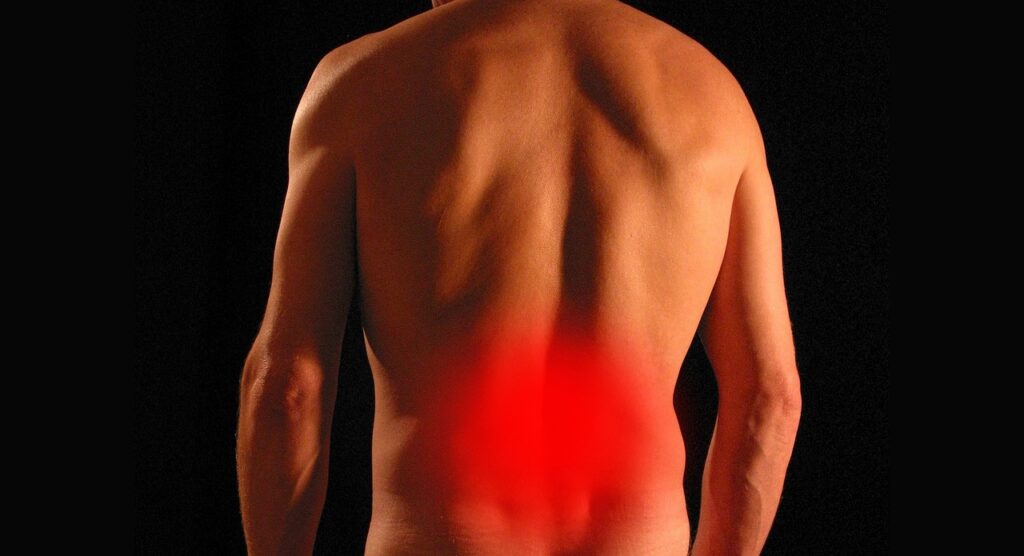Hypertension or high blood pressure in back pain is a common condition affecting millions of people globally. It’s sometimes called the “silent killer” because it can wreak havoc on the body without obvious symptoms.
Back pain is just a common complaint and whether high blood pressure contributes to it or not is what a lot of people want to know. In this article, we’ll take a closer look at the possible link between hypertension and back pain, including causes, symptoms, and when to see the doctor.
Does High Blood Pressure Causes Back Pain?
High blood pressure by itself does not cause back pain, but the two are linked by underlying health problems. Chronic illnesses (say high blood pressure or diabetes) when neglected, have their consequences that pave way for back pain.
In some cases, uncontrolled hypertension can lead to conditions like kidney disease or aneurysms, which may cause back pain or discomfort.
Other symptoms that people have high blood pressure might experience include symptoms that would have indirect effects on their back, like muscle tension or stress.
The fear of COVID-19, for instance, can result in long-term stress and physical tension in the body, such as tightness in the lower back.
Associated Conditions That Induce Back Pain Related to High BP
The link between some high blood pressure-related illnesses and back pain these include:
Kidney Disease
High blood pressure can cause kidney damage to accumulate over time, eventually resulting in nephropathy.
Kidney dysfunction can cause lower back pain, just beneath the ribs. This pain is typically dull and can increase as kidney function decreases.
Aortic Aneurysm
The aorta is the big artery that carries blood from the heart to the rest of the body. Chronic hypertension can weaken the walls of the aorta, causing an aneurysm to develop.
If it is an abdominal or thoracic aortic aneurysm it could also hurt in the back. This type of pain can be intense and sudden and may require urgent medical attention.
Spinal Problems
High blood pressure may also be a contributing risk factor of degenerative spinal disease including degenerative disc disease or herniated discs. These spinal issues ultimately can cause a great deal of back pain although none of these things are caused by high blood pressure directly.

Stress and Back Pain: The Connection
Stress is a common factor in both high blood pressure and high blood pressure and back pain. When you feel stressed, your body does release the stress hormones, like adrenaline and cortisol.
These hormones can tighten up muscles, especially in the back and neck. Muscle tension can build up over time with chronic stress and may lead to pain or discomfort in lower back.
The stress of coping with high blood pressure can also lead to bad posture and habits that cause back pain. How long can you sit for with for example, for example, prevailing pose can also cause muscle imbalances and tension on the back muscles.
When to Seek Medical Help
Seek medical advice if your back pain is accompanied by symptoms of high blood pressure. This is particularly true if back pain is very painful, happens suddenly or comes with other signs such as pain in the chest, light-headedness or shortness of breath, which could be a sign of something serious such as an aneurysm or heart disease.
Treating both high blood pressure and back pain how to treat back pain.includes directly treating the source of the back pain. But consult your healthcare provider about whether there’s an underlying health problem linking both conditions and what an appropriate treatment plan might look like.
Prevention and Management
Controlling high blood pressure through lifestyle changes is essential in preventing complications like kidney disease or aneurysms.
All these methods, including medication, help you manage blood pressure levels through a balanced diet, exercise, and stress management.
In terms of back pain, keeping good posture, exercising to strengthen the muscles that hold up the spine, and practicing relaxation techniques can all lower the risk of pain. When back pain becomes chronic, physical therapy or other treatment may be needed.
Summary
High blood pressure, or hypertension, does not directly cause back pain, but can cause other conditions that cause the back to hurt.
Hypertension contributes to and causes kidney disease, aneurysms and spinal problems. Moreover, high blood pressure leads to stress, which is also prominent, and it contributes to muscle tension and issues in the back.
If you have back pain and other symptoms of hypertension, consult your healthcare provider for assessment and treatment.

